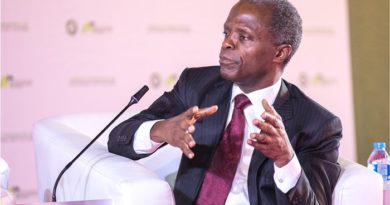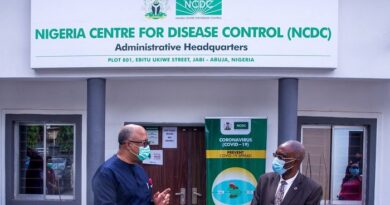Business Reforms: New 60-Day National Action Plan starts next week
In furtherance of its reform agenda to boost the business environment in the country, the Federal Government will be commencing a 60-day National Action Plan (NAP 3.0) starting from 5th February to 5th April 2018, to drive the ease of doing business initiative of the Buhari Presidency.
The Presidential Enabling Business Environment Council approved the plan at its first meeting of the year held yesterday at the Presidential Villa and chaired by Vice President Yemi Osinbajo, SAN.
Prof. Osinbajo who restated government’s commitment to making business work in Nigeria, stressed the need to engage continuously with public and civil servants, with a special focus on Permanent Secretaries and Heads of Agencies, as this would encourage sustainability in the ease of doing business initiatives of the administration.
The plan which is third in the series, is expected to further reduce the challenges faced by SMEs when, getting credit, paying taxes, or moving goods across the country, amongst others, by removing critical bottlenecks and bureaucratic constraints to doing business in Nigeria.
The reforms will also aim to continue Nigeria’s upward progress in the World Bank’s Ease of Doing Business Index 2019.
Reforms implemented across various sectors of the economy and Ministries, Departments, and Agencies (MDAs) of government had seen Nigeria move up 24 places in the World Bank’s Ease of Doing Business Index 2018. As a result of the reforms, Nigeria moved up from 169th position on the 2017 ranking and also 170th position on the 2016 ranking to 145 in the World Bank’s 2018 report.
Some of the reforms to be implemented include further enhancing the efficiency in tax remittances include driving the adoption of electronic filing for taxes for all categories of companies, increase accessibility of affordable credit for SMEs by driving and incentivizing banks to utilize the collateral registry, and also increase the number of SMEs that can access government contracts by communicating and enforcing the minimum employee requirement for pension contributions as 15 employees through the Bureau of Public Procurement.
The NAP 3.0 will build on reform efforts that started during the beginning of the 2017/2018 reform cycle with NAP 2.0, which aims to deepen the ease of doing business reforms implemented across the various Ministries, Departments, and Agencies (MDAs) in the last 16 months and will in turn increase productivity through industrialization, enhanced exports and foreign exchange earnings, while creating jobs and reducing poverty.
The Council also reviewed the six-month report on the Executive Order 01 (EO1), and discussed extensively the performance of various agencies, and its implications for the Councils efforts at making Nigeria a progressively easier place to do business.
The Section of Business Law team, (representing over 40 law firms who were critical in scoping and drafting the Omnibus Bill) also formally presented the Draft Omnibus Bill to the Council, with discussions centered around its importance to the ease of doing business efforts.
The Council was also briefed on the progress of the web-based feedback mechanism (PEBEC.Report) that has been in pilot phase between November and December 2017.
The Ministers of Budget & National Planning, Senator Udo Udoma, Power Works and Housing, Babatunde Fashola, Information and Culture, Lai Mohammed, Representatives of the National Assembly, and the Lagos, Kano state governments, and the private sector, attended the meeting.




